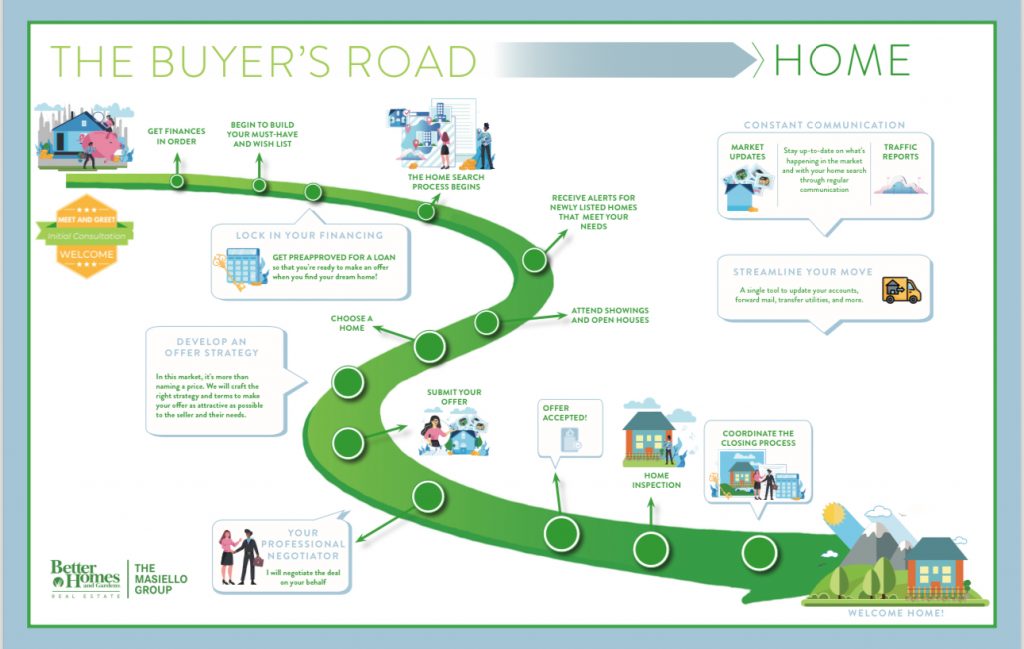Learn more about loan options!

Buying a house is a significant milestone, but it can feel overwhelming, especially if you’re a first-time homebuyer. Understanding the steps involved can help you navigate the process confidently. Here’s what you need to know.
STEP 1: ASSESS YOUR FINANCIAL READINESS
Before starting your home search, it’s crucial to evaluate your finances. Ask yourself:
How much can I afford?
Do I have a steady income?
What is my credit score?
KEY ACTIONS:
Calculate your monthly budget, including potential mortgage payments, property taxes, and insurance. To simplify the process, use budgeting apps (e.g., Mint or YNAB) or online calculators.
Check your credit report for errors and take steps to improve your credit score if needed.
Save for a down payment. While some programs offer options for as low as 3%, a 20% down payment can help you avoid private mortgage insurance (PMI).
Consider consulting a financial advisor to help you plan your savings strategy and understand your financial options.
STEP 2: GET PRE-APPROVED FOR A MORTGAGE
A mortgage pre-approval shows sellers that you’re serious and financially capable of buying a home. It also gives you a clear picture of your price range.
STEPS TO GET PRE-APPROVED:
Gather necessary documents, like pay stubs, tax returns, and bank statements.
Research lenders to compare interest rates and fees. Use reputable mortgage comparison websites like Bankrate or NerdWallet to find the best options.
Apply to receive a pre-approval letter.
Tip: Use online tools like Zillow’s affordability calculator to estimate your budget.
STEP 3: FIND A REAL ESTATE AGENT
A qualified real estate agent will guide you through the buying process, negotiate on your behalf, and provide valuable insights into the local market. When choosing an agent, consider:
Their experience with first-time homebuyers.
Knowledge of your desired neighborhood.
Reviews and testimonials.
Ask potential agents questions such as:
How many buyers have you helped in the last year?
What is your experience in this neighborhood or price range?
Can you provide references from recent clients?
Find your next agent by visiting our website. Learn how you can buy with us.
STEP 4: START HOUSE HUNTING
Now comes the fun part—searching for your dream home! Keep these tips in mind:
Make a Wish List: List your must-haves (e.g., number of bedrooms, location) and nice-to-haves.
Tour Homes: Attend open houses or schedule private showings.
Be Open-Minded: It’s rare to find a home that meets all your criteria, so be flexible.
Pro Tip: Use detailed online listings with tools like virtual tours or advanced filters to narrow down your options before scheduling visits.
STEP 5: MAKE AN OFFER
When you find the right home, the next step is making an offer. This can be an exciting yet complex process, so your real estate agent will help guide you in determining an appropriate offer price based on the market and comparable homes. Key components of an offer include:
Purchase Price: Your proposed price for the property.
Contingencies: Conditions that must be met for the contract to go forward. Common contingencies include a home inspection or financing approval.
Closing Date: The proposed date to finalize the transaction.
COMMON CONTINGENCIES:
Home Inspection: Allows the buyer to request repairs or adjustments based on findings from a home inspection.
Appraisal: Ensures the home is worth the offered price. If the appraisal is low, the buyer may renegotiate or withdraw (Investopedia).
Financing Approval: Protects the buyer if a loan is not approved.
STEP 6: SCHEDULE A HOME INSPECTION
Scheduling a home inspection is crucial for identifying potential issues with a property. During the inspection, a certified professional will assess:
Structural Integrity: Ensures the foundation, walls, and roof are sound.
Electrical and Plumbing Systems: Checks for potential hazards or repairs needed.
Roof and Exterior: Looks for wear or damage that could require costly repairs.
A certified home inspector will provide a detailed report, which you can use to negotiate with the seller if major issues are found (National Association of Certified Home Inspectors).
If you need help finding a certified inspector, websites like ASHI and InterNACHI provide directories of qualified professionals.
STEP 7: SECURE YOUR FINANCING
Once your offer is accepted, securing financing is the next essential step. The type of mortgage loan you choose will have a significant impact on your monthly payments and long-term financial goals. Common mortgage types include:
Fixed-Rate Loans: Offer consistent monthly payments with a stable interest rate.
Adjustable-Rate Loans: Start with lower rates, but the rate can change over time.
Government-Backed Loans (FHA, VA, USDA): Offer lower down payments and more flexible credit requirements for qualifying buyers (Bankrate).
Understanding the pros and cons of each option is critical for choosing the loan that best fits your financial situation. Fixed-rate loans provide stability, but adjustable-rate loans may offer more flexibility in the early years of the mortgage. Be sure to lock in your interest rate to avoid fluctuations.
STEP 8: CLOSE THE DEAL
The final step is the closing process, where ownership is officially transferred to you. Expect to:
Sign paperwork, including the mortgage agreement and title transfer.
Pay closing costs, which typically range from 2% to 5% of the home’s purchase price.
Receive the keys to your new home!
PREPARING FOR CLOSING DAY:
Review all documents in advance to ensure you understand the terms.
Arrange for utilities like electricity, water, and internet to be set up in your name.
Confirm the final walkthrough to ensure the property is in agreed-upon condition.
Buying a house is a journey, but it's entirely achievable with the right preparation and support. Start by carefully assessing your finances, assembling a trusted team, and following each step. Whether buying your first home or upgrading, these tips can help you confidently navigate the process.
Ready to start your home search? Browse Homes to see what’s available in your area!
RESOURCES FOR FIRST-TIME HOMEBUYERS
HUD.gov Homebuyer Assistance Programs
New Hampshire Housing Authority
HUD Homebuyer Information & Programs
New Hampshire Housing Authority
Learn more on $15,000 Downpayment Assistance Programs



